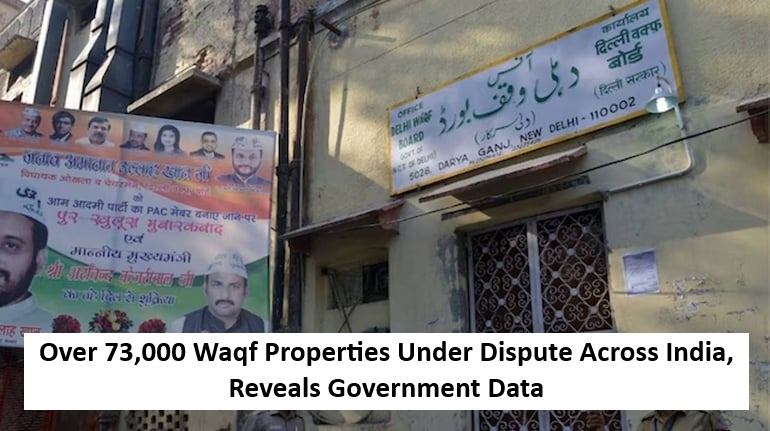
According to the Waqf Assets Management System Of India (WAMSI), more than 73,000 waqf properties across India are under dispute. This database, managed by the Ministry of Minority Affairs, shows that India has over 8.7 lakh immovable waqf properties in 30 states and Union Territories.
Out of these, 73,646 properties are either encroached, under legal dispute, or transferred under questionable circumstances.
Breakdown of Disputed Waqf Properties
Encroached: 58,929 properties are reported as illegally occupied. These may include cases of government or private encroachment.
Under Litigation: 13,723 properties are involved in legal cases. These could be internal waqf disputes or external civil suits.
Alienated: 994 properties are marked as transferred unlawfully and are being challenged in court.
Key Categories of Waqf Assets
More than two-thirds of all waqf assets belong to five main types:
Graveyards – 17.3% of total assets
Agricultural land – 16%
Mosques – 14%
Shops
Houses
States With the Highest Number of Waqf Properties
Uttar Pradesh: 2.4 lakh properties, managed by separate Sunni and Shia boards
West Bengal: 80,480 properties
Punjab: 75,511 properties
Tamil Nadu: 66,092 properties
Karnataka: 65,242 properties
Bihar is the only other state besides UP that has both Sunni and Shia Waqf boards.
States With Highest Share of Disputed Properties
Punjab: 56.5% of its waqf assets are marked as encroached.
West Bengal: 3,742 properties are in dispute.
Uttar Pradesh: Despite the largest asset base, only 3,044 properties are disputed.
Waqf Amendment Bill Now Enforced
Recently, Parliament passed the Waqf (Amendment) Bill, introducing key changes in the governance of waqf assets. It was approved in both the Lok Sabha and Rajya Sabha and has now become law following President Droupadi Murmu’s assent.
Read More: They Call It Progress, We Call It Betrayal Why Rahul Gandhi is Fuming Over the Latest Arrests

 Share
Share_1820244660_100x75.jpg)
_365039172_100x75.jpg)
_1405734818_100x75.jpg)
_822217780_100x75.jpg)
